Facebook
Twitter
LinkedIn
Pinterest
Reddit
Email
Print
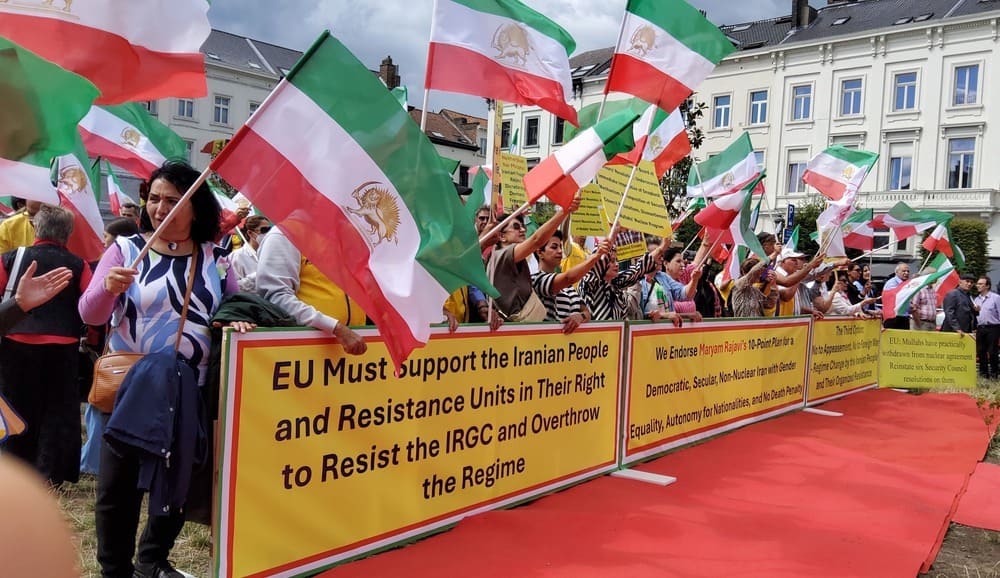 Brussels Rally Backs Maryam Rajavi’s Third Option for Iran: No to War, No to Appeasement, Yes to Regime Change
Brussels Rally Backs Maryam Rajavi’s Third Option for Iran: No to War, No to Appeasement, Yes to Regime Change
THIS PAGE WILL BE UPDATED WITH THE LATEST NEWS
UPDATE: 8:00 AM CEST
Message to the Conference at the UK Parliament, “Third Option: Change by Iran’s People and Resistance”
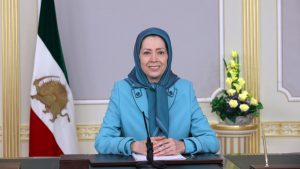
The twelve-day war, with all its dimensions, has brought to light an undeniable truth: the solution to the crisis in Iran lies neither in appeasement of the regime, and the continuation of this regime, nor in foreign military intervention.
The real solution is the Third Option—championed for years by the Iranian Resistance—namely, regime change by the Iranian people and their organized resistance.
The decisive battle that will shape the future of Iran and the region is the struggle of the Iranian people against the ruling religious fascism.
A decade of deception: How the JCPOA’s failure vindicates the Iranian Resistance’s warnings
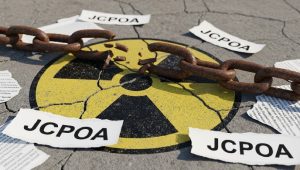
Ten years ago, on July 15, 2015, the Iranian regime celebrated the signing of the Joint Comprehensive Plan of Action (JCPOA), which its then-president Hassan Rouhani hailed as a “great political victory.” Today, that supposed victory lies in tatters. As the deal marks its grim tenth anniversary, European powers are openly warning of activating the snapback mechanism, a move that would reimpose all international sanctions and deliver the final blow to the agreement.
Iranian authorities try to abduct political prisoner Saeed Masouri, signaling new wave of terror in prisons
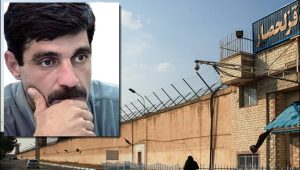
In a brazen act of desperation, the Iranian regime’s security forces launched a violent raid on Ghezel Hesar prison on July 16, attempting to abduct one of Iran’s longest-serving political prisoners, Saeed Masouri. According to a harrowing report from the Iran Human Rights Society (HRS), the regime’s henchmen stormed the political prisoners’ ward without a judicial warrant, intending to move Masouri to an unknown location. The plot was only thwarted by the courageous and collective resistance of his fellow inmates, who forced the guards to retreat.
Women’s Retirement Made Tougher Under New Social Security Law
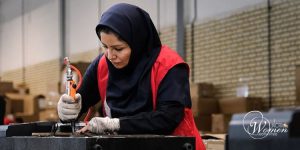
In a fresh wave of regressive reforms, the Iranian regime has significantly tightened the conditions for women’s retirement under the amended Social Security Law.
According to a report by the media outlet Kartaban, the new law, which came into effect on July 24, 2024, introduces harsher requirements in terms of age, years of service, and retirement benefit calculations—effectively making retirement more difficult and less accessible for working women across the country.
Winterthur Exhibition Denounces Iran’s Human Rights Violations, Calls for Global Response
Winterthur, Switzerland – July 16, 2025 – Supporters of the People’s Mojahedin Organization of Iran (PMOI/MEK) organized an exhibition in Winterthur to denounce the Iranian regime’s worsening human rights abuses, highlighting the surge in death sentences imposed on political prisoners.
Participants strongly condemned the mass executions carried out by the clerical regime and called for the immediate release of all political prisoners. They urged the international community to hold Iran’s leaders accountable for crimes against humanity by prosecuting them in international courts.
Brussels Rally Backs Maryam Rajavi’s Third Option for Iran: No to War, No to Appeasement, Yes to Regime Change
Brussels, Belgium – July 16, 2025 – Supporters of the Iranian Resistance, including the National Council of Resistance of Iran (NCRI) and the People’s Mojahedin Organization of Iran (PMOI/MEK), gathered outside the European Parliament in Brussels to voice their opposition to the clerical regime in Tehran and advocate for a democratic alternative.
The demonstrators rallied in support of the “Third Option” proposed by Maryam Rajavi, President-elect of the NCRI, which calls for democratic change led by the Iranian people and the organized resistance movement. Rejecting both foreign military intervention and appeasement of the regime, they promoted this path as the only viable solution for a free and stable Iran.
Report on the State of Human Rights and Criminal Justice in Iran
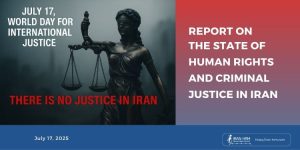
July 17 marks the anniversary of the adoption of the Rome Statute in 1998 and is celebrated globally as the Day of International Criminal Justice. The establishment of the International Criminal Court (ICC) was a major step toward ending impunity for the gravest crimes, including genocide, crimes against humanity, war crimes, and the crime of aggression. While many countries have taken steps toward these goals, the ruling regime in Iran remains a stark example of systematic disregard for international criminal justice.
The Iranian judiciary is not independent. It is fully subordinate to security and intelligence bodies such as the IRGC (Islamic Revolutionary Guard Corps) and the Ministry of Intelligence. This structural subjugation has led to:
Iran’s Regime Negotiates with Four Countries to Import Water as Crisis Deepens

Amid growing warnings about water shortages and the Iranian regime’s failure to manage the drought crisis, Abbas Aliabadi, Iran’s Minister of Energy, stated that importing water from neighboring countries is on the agenda and that negotiations have already taken place with Turkmenistan, Afghanistan, Tajikistan, and Uzbekistan.
On Tuesday, July 15, Aliabadi noted that Iran has been suffering from drought for more than five years and said, “Our rainfall is down 31% compared to last year and 44% below the long-term average.” In response to a question about the water crisis, the Minister of Energy said, “There is no water now. We have to consume slowly to make it last longer.”
PMOI Supporters Given Double Death Sentences by Iran’s Regime
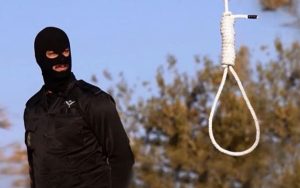
As part of the ongoing wave of repression and political executions, the judiciary of Iran’s regime issued harsh sentences against five political prisoners on Saturday, July 12. Three of them—Farshad Etemadifar, Masoud Jamei, and Alireza Mardasi (Hamidavi)—were each sentenced to two executions and one year in prison. The other two, Saman and Davood Hormatnejad, were sentenced to 12 and 15 years of discretionary imprisonment, respectively.
These sentences were issued by Branch One of the Revolutionary Court in Ahvaz, presided over by Judge Adibi-Mehr. The official charges include “waging war against God (moharebeh),” “assembly and collusion against national security,” “membership in the People’s Mojahedin Organization of Iran (PMOI/MEK),” and “propaganda against the regime”—charges frequently used against political prisoners to justify harsh sentences.
EU and US Escalate Pressure on Iranian Intelligence Over Human Rights Abuses and Transnational Crimes
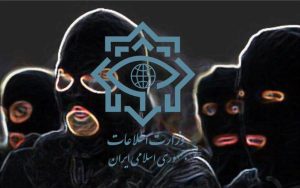
Crackdown targets assassination networks and officials linked to the disappearance of Robert Levinson
The European Union and the United States took coordinated but distinct actions this week to intensify pressure on Iran regime’s intelligence apparatus, accusing Tehran of a sweeping pattern of human rights violations, extraterritorial assassinations, and hostage-taking operations.
On Tuesday, the European Council announced sanctions against eight individuals and one entity under the EU Global Human Rights Sanctions Regime, citing their involvement in serious human rights abuses committed on behalf of Iranian state bodies outside the country. The move comes amid growing international concern over Iran regime’s use of transnational repression and proxy agents to silence critics, dissidents, and journalists worldwide — including within the EU itself.
Iranian Regime Leaders Voice Deep Fears Over Internal Collapse and Foreign Infiltration
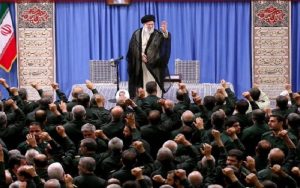
As cracks widen in the Iranian regime’s security and legitimacy, officials issue conflicting statements revealing panic, disorientation, and persistent fear of regime overthrow
As the Iranian regime emerges from the shadow of a 12-day war with Israel, its senior political figures—across factions and branches—are increasingly vocal about the fragility of the regime’s internal foundations.
Statements from top officials, including President Masoud Pezeshkian, his advisors, and former foreign minister Mohammad Javad Zarif, paint a picture of a leadership engulfed in paranoia over espionage, popular revolt, and geopolitical isolation. Despite public reassurances of stability, these admissions suggest a regime operating under intense pressure, and possibly at its most vulnerable point in decades.
Internal Discord and Espionage Scandals Expose Cracks in Iran’s Security Structure
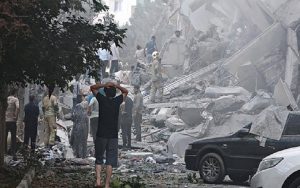
Conflicting statements among Iranian regime’s officials reveal deep confusion and vulnerability amid escalating foreign intelligence operations
As the Iranian regime grapples with mounting internal crises and growing external pressures, a series of contradictory statements from members of the Iranian parliament have revealed the regime’s escalating internal confusion and insecurity. The public discourse now reflects not only deep institutional disarray but also an intensifying struggle over how to respond to perceived infiltration by foreign intelligence services. In one striking statement, MP and IRGC member Ebrahim Abnoosh, who serves on the regime’s National Security Commission, called for a sweeping purge of “infiltrators and undesirable elements” within state institutions.